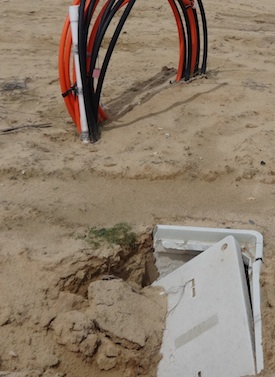Californians with better Internet infrastructure have a better life, and vice versa

Bling is no substitute for bandwidth.
Statewide quantitative research done by the Field Poll on behalf of the California Emerging Technology Fund shows that most Californian adults – 86% – use the Internet “at least occasionally”. Most – 75% – have some kind of Internet access at home. But the way they access the Internet at home is also a good predictor of mainstream status.
Nearly all adults between 18 and 29, or with a college degree, or making $60,000 a year or better have Internet access at home.… More









